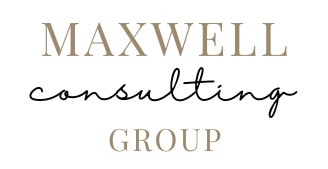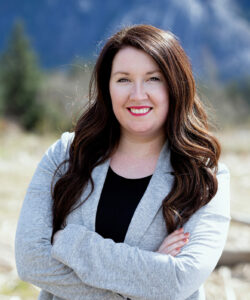Power is an elusive force. We can’t see it, hear it, touch it, smell it, or fully understand all its facets; yet, even when we don’t realize it, power is as much a part of our everyday lives as the air we breathe.
Hilary nyte
Guest Blog by Maxwell Consulting Group Intern Hilary Nyte
Learn more about Hilary here.
Perhaps because power is so difficult to quantify or recognize, there are countless definitions and theories that try to capture it. To give you a taste of what’s out there, we have focused on four aspects of power that we will unpack further in upcoming posts.
Positional Power
Positional power is likely the most broadly understood description of power. This kind of power was first defined in 1959 by researchers John R.P. French and Bertram Raven in their “Bases of Social Power”. French and Raven gave us the initial five kinds of power listed below; however, since these first five kinds of power were published, the floodgates have opened to an ever-expanding encyclopedia of traits and strategies used to exercise power.
1. Legitimate Power: usually associated with high-power or high-status titles like “Executive”. This person usually holds the power to punish or reward the employees they supervise.
2. Coercive Power: one’s capacity to punish someone else for their refusal to comply. For example, through fear of losing something important to them (such as salary).
3. Reward Power: one’s capacity to reward someone else for their compliance. For example, offering a promotion or raise.
4. Expert: this power comes from holding knowledge or skills that others do not have. Others look to this person for their expertise in a specific area. For example, when facing a medical issue, we turn to doctors or specialists to help us resolve the problem and trust their recommendations.
5. Referent: power that comes from being someone that others can depend on and look up to. This person is trustworthy and is known as a leader that others want to follow.
Personal Power
The unfortunate reality of power being such a taboo subject is that many of us don’t know that we have Personal Power if we don’t see ourselves as possessing the status, titles, or positional power that are typically recognized as “powerful” in our society.
According to Cyndi Suarez, in her article titled “Introduction to Power,” “at the personal level, power shows up as identity.” She goes on to explain that we are powerless when we internalize the idea of power as dominance and fall into patterns of either trying to hold power over others or allowing others to hold power over us. According to Suarez, we are most powerful when we intentionally refuse and unlearn the concept of power as dominance – shifting instead to intentionally creating what we want.
Julie Diamond paints a similar picture in her article, “5 Ways to Cultivate Your Personal Power” by defining personal power as “the inner resource that we can control and which no one can take from us. We are in possession of our Personal Power no matter where we are, or what challenges we face.”
For those of us who were raised in societies that are predominantly focused on positional power, learning that personal power is something everyone inherently has and cannot lose is a revolutionary idea. If everyone had access to this knowledge, and had the resources they needed to tap into their personal power, it stands to reason that we might live in a vastly different world.
How many problems could be resolved if power was embraced as a collaborative, creative, energizing force instead of a struggle for dominance?
HILARY NYTE

Liberatory Power
As mentioned in our last post, Liberatory Power offers us a way to understand and use power from an entirely new paradigm than the positional power most of us are familiar with.
Cyndi Suarez describes liberatory power as “the ability to create what we want.” She says, “liberatory power helps one refrain from asserting power over others, or to do so carefully… Liberatory power invites one to construct a story about oneself as powerful. It trains us to look for where our power is.” (Suarez, 2018).
One way to think of liberatory power is an ongoing sharpening of our pattern recognition and critical thinking skills. Liberatory power gives us language and tools to identify attempts to dominate and rewrite that old script.
Spiritual Power
Spiritual Power is an unexpected concept that has shown up in a variety of ways throughout the research I’ve completed so far. To be clear, this idea is not based in any particular religion, but rather in an experience of true belonging and interconnectedness. The description of spirituality Brene Brown shares in her article “Defining Spirituality” gives us a clear understanding:
“Spirituality is recognizing and celebrating that we are all inextricably connected to each other by a power greater than all of us, and that our connection to that power and to one another is grounded in love and compassion. Practicing spirituality brings a sense of perspective, meaning, and purpose to our lives.”
BRENE Brown
- Brown goes on to describe that practicing the spirituality described above comes in many different forms. For some, that is engaging with some sort of organized religion, and for others it may come in experiencing nature, or spending time in quiet contemplation.
- Cyndi Suarez describes ancient Indian spiritual practice called the Shiva Sutras that she experiences as liberation practices. Suarez describes one aspect of “Shiva Consciousness” as a passive state of “being on the lookout for the Divine in each other… responding passively to the triggers of difference… and understanding everything, including the self, as divine” (Suarez, 2018).
- In her book, “Power: A User’s Guide,” Julie Diamond discusses similar themes when she encourages readers to embrace every aspect of their personalities, and to tend to their personality as one would tend to a garden (Diamond, 2016).
- Spirituality in business is connected, especially in purpose-driven organizations, or what we at MCG call “businesses with a soul.” This starts with leadership and extends to the whole of the organization.
- It seems practices that enable us to tap into self-acceptance, reflection, and a sense of interconnectedness with the world around us, are crucial to using our power well, and growing holistic ESG strategies.
Hilary Nyte is a Maxwell Consulting Group Intern who has spent the last 8 months diving into power, power stewardship, and how we can increase power literacy with our Clients resulting in responsible business practice.
Sources:
- French, J. R. P. Jr., & Raven, B. (1959). (PDF) The bases of social power. ResearchGate; Univeristy of Michigan, Institute for Social Research. https://www.researchgate.net/publication/215915730_The_bases_of_social_power
- Suarez, C. (2022, June 7). Introduction to power. Nonprofit Quarterly. https://nonprofitquarterly.org/introduction-to-power/
- Diamond, J. (2018, September 11). 5 ways to cultivate your personal power. Diamond Leadership. https://diamondleadership.com/how-to-cultivate-personal-power/
- Suarez, C. (2018). The power manual: How to master complex power dynamics. New Society Publishers.
- Brown, B. (2018, March 27). Defining spirituality. Brené Brown. https://brenebrown.com/articles/2018/03/27/defining-spirituality/#:~:text=%E2%80%9CSpirituality%20is%20recognizing%20and%20celebrating
- Diamond, J. (2016). Power: A user’s guide. Belly Song Press.





